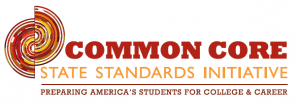Teaching a new generation

High school students from Bergen Academies, NJ, explore the ALBA collection at NYU’s Tamiment Library. Photo Juan Salas
The early 20th century Italian philosopher, Benedetto Croce, claimed that each generation writes its own history because each generation asks fresh questions about the past. In the early 21st century, we may say that each generation writes its own history, in America at least, because the educational establishments—Boards of Education, curricula experts, parents, and bureaucrats—devise ever new ways of improving the learning process, seeking to make the classroom experience relevant to current events and expectations.
Whatever the reasons, these changes are not necessarily a bad thing. In fact, a Department of Education-supported initiative to establish “Common Core Standards” to be used in all regions of the country (over 40 states have signed on to the program) promises to change the way students in every grade learn to think and write. In social studies classes, students will study history—not by rote or memorization, but by confronting directly original primary documents and attempting to explain what they meant when they were written and what they still mean.
 This approach to studying history and social studies (as well as language arts and other subjects) reinforces ALBA’s efforts during the past five years to introduce issues related to the Spanish Civil War into the secondary schools through the use of primary sources drawn from the Abraham Lincoln Brigade Archives collection.
This approach to studying history and social studies (as well as language arts and other subjects) reinforces ALBA’s efforts during the past five years to introduce issues related to the Spanish Civil War into the secondary schools through the use of primary sources drawn from the Abraham Lincoln Brigade Archives collection.
At a moment when the basic strategies of teaching social studies are being re-evaluated, key aspects of the Spanish Civil War assume a new value and relevance as teachers and students seek appropriate material to study the past.
Since September 2012, ALBA has directed a series of professional development days in California, New York, New Jersey, Florida, and Ohio. Typically, these programs introduce secondary school teachers in social studies, Spanish, and English to key documents suitable for classroom use. ALBA’s instructors help teachers contextualize the sources and create questions and assignments suitable to various levels of student ability.
Letters written home by volunteers in the Lincoln Brigade, for instance, provide not only commentary about U.S. policies of neutrality and non-intervention during the 1930s, but also serve to raise questions about current events, such as intervention in other countries’ civil wars. Such letters can be mixed with visual source material. A letter by Lincoln volunteer Boleslaw Sliven in 1937 describing the bombing of civilians can lead to a discussion of Picasso’s Guernica or a poster that appeared on the walls of Madrid.
And vice versa, a visual source—photograph, poster, work of art—can lead to discussions of political choices. In addition, a high school Spanish teacher can use a single poster—for example, ¿Qué haces tú para evitar esto—to show uses of the present tense, the interrogative, the imperative, and the infinitive. The same poster enables a social studies teacher to inquire why this poster was widely translated into French and English, and thereby raise questions about isolationism versus interventionism in the Spanish Civil War.
With more school districts committed to the Common Core Standards, moreover, ALBA has drawn on its “alumni” from previous professional teaching institutes to align the Spanish Civil War documents to specific requirements of the standards. Last June, a network of teachers in Ohio developed a series of lesson plans (some extending for several days’ instruction) to show how Spain’s Civil War provides a critical stage for the coming of World War II, a subject widely taught in U.S. and World History classes.
Heading into the new academic year, ALBA will provide workshops this fall in New York City, Bergen County, New Jersey, and Western Massachusetts. Additional districts will be added for the winter and spring as ALBA works to fulfill its goal of reaching a new generation with a new type of history.
Peter N. Carroll chairs ALBA’s subcommittee on teaching.












